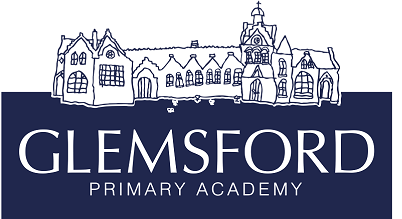Curriculum

Broadening Minds
At Glemsford, we want our pupils to experience the widest possible range of learning opportunities through a knowledge-based curriculum. We want them to develop the skills of scientists, historians, geographers, artists and musicians whilst developing a love of knowledge. We want them to be independent thinkers who can create, describe, reason, debate, inform, and explain their ideas. We want a curriculum that prepares children for life.
Children at Glemsford engage with, and take notice of, the environments in which they work. We endeavour to give all our children outdoor learning experiences. This might be building a shelter on our school playing field or taking a trip to London. We want to work with parents and other adults within our local community to help bring the curriculum to life and offer a variety of experiences.
English, maths, computing, RE, music, PSHE and PE are taught every week. For other subjects the academic year is split into studies of learning. Approximately three hours a week are dedicated to one area of the broader curriculum. For example, in the spring term all children in years 1 – 6 work as artists, learning different styles of painting and studying different artists. This leads to high quality teaching and learning and gives teachers, parents and children a chance to really embrace an area of the curriculum.
Please follow the subject links for further information and resources on the subjects taught at Glemsford Primary Academy.
Subject Links
Please follow the subject links for further information and resources on the subjects taught at Glemsford Primary Academy.
Attachments
Curriculum Policy
Curriculum-Policy-2025.pdf
Assessment Policy
Assessment-policy-Jan-25.pdf
Teaching & Learning Policy
Teaching-and-Learning-Policy-2025odt.pdf
Feedback for Learning Policy
Feedback-for-Learning-Policy-2025.pdf
Relationships and Sex Education Policy
Relationships-and-Sex-Education-Policy-1.pdf
